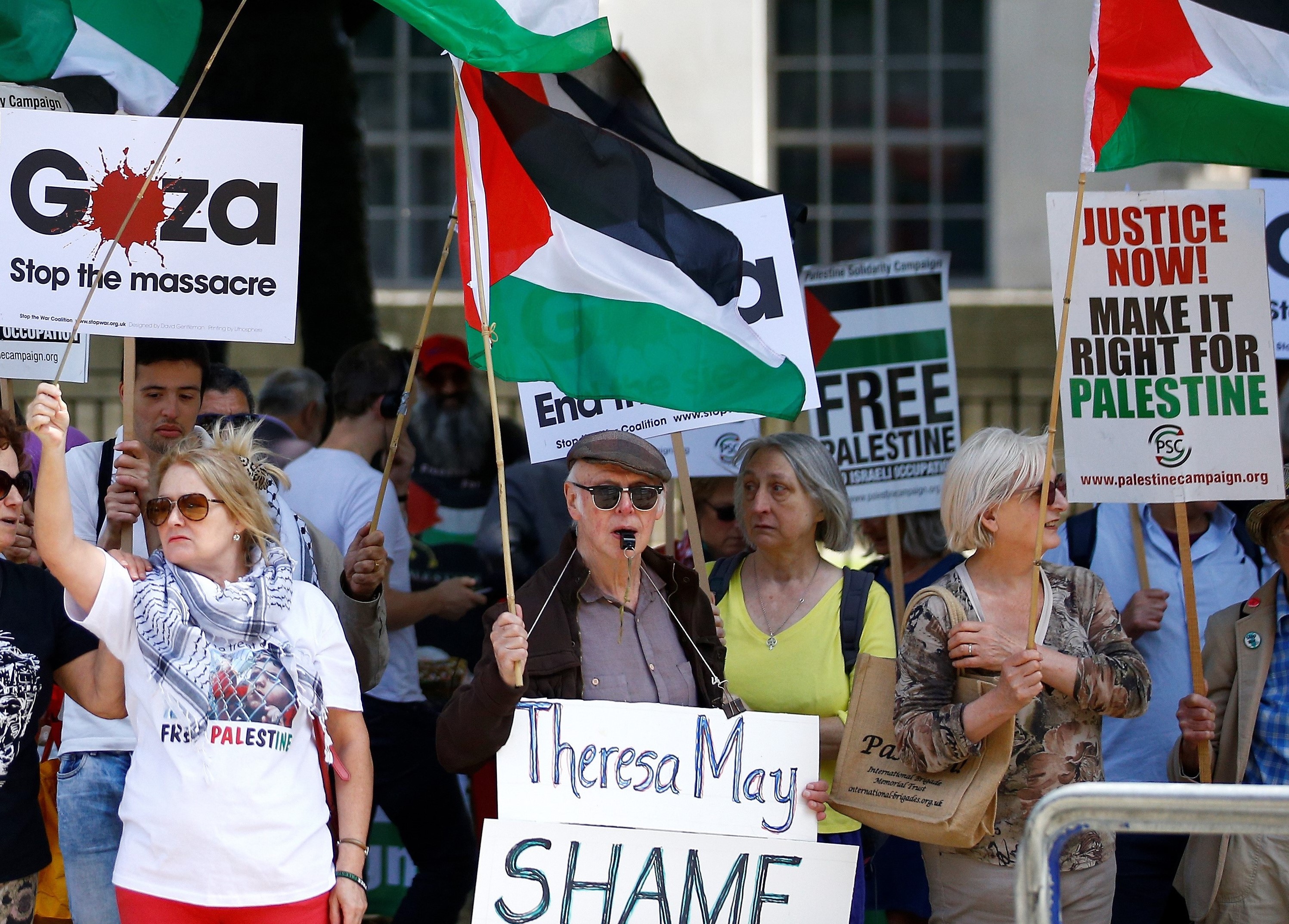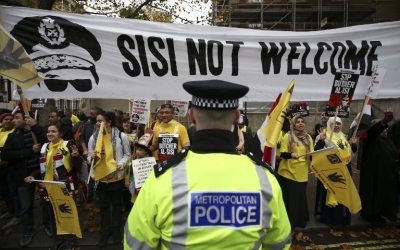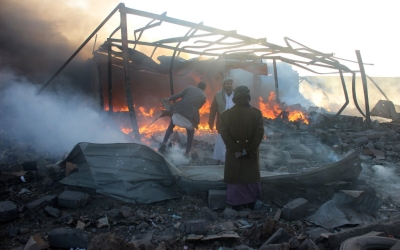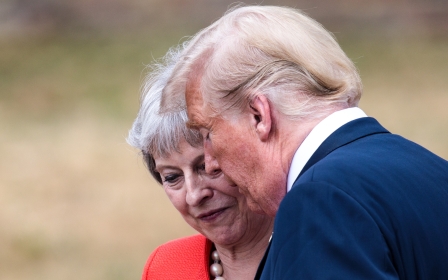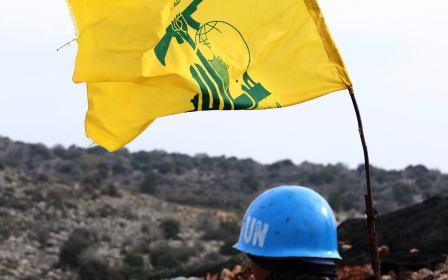Boris Johnson or Jeremy Hunt: On the Middle East, it makes no difference
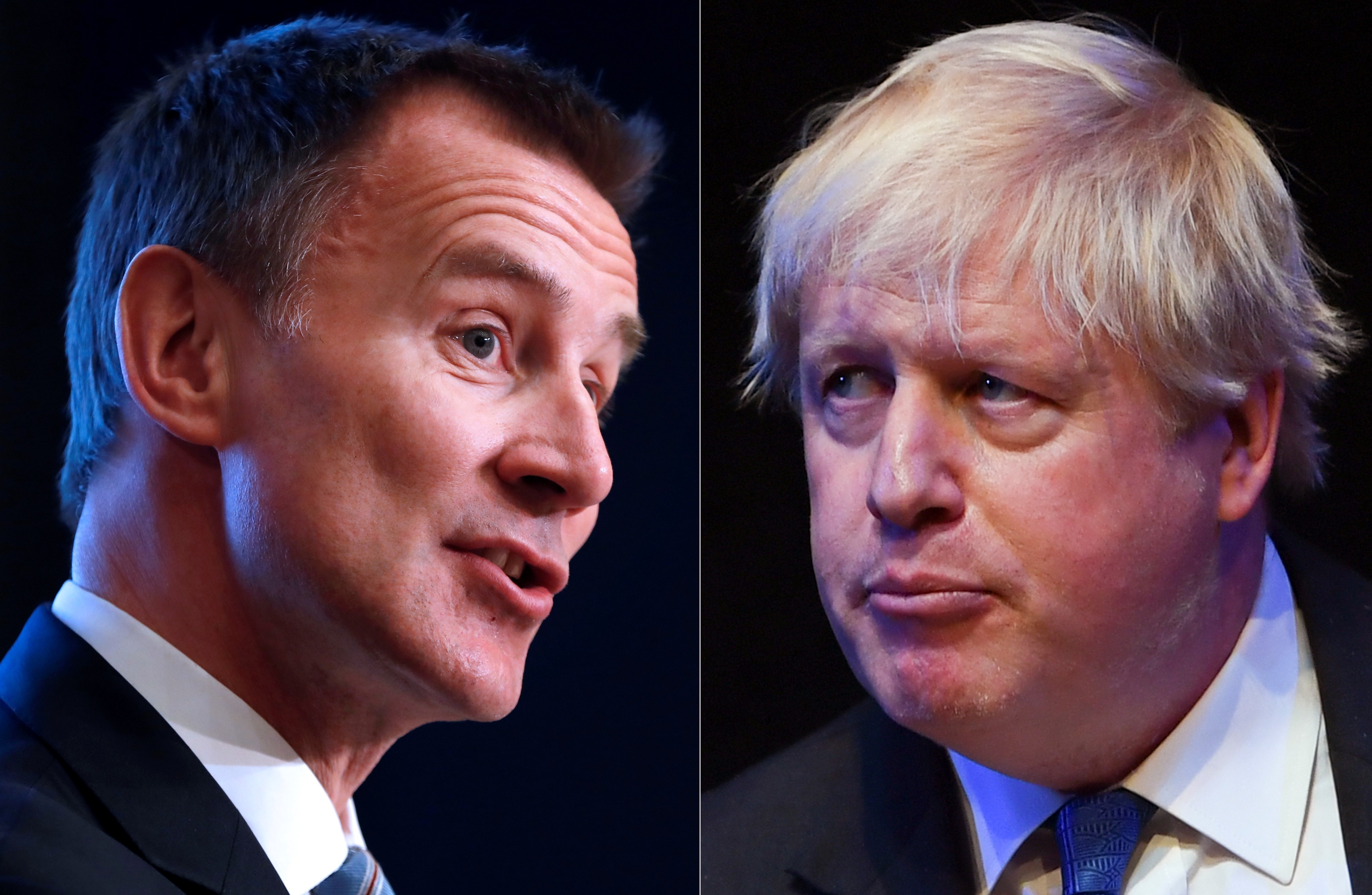
The contest to become the leader of Britain's ruling Conservative Party, and the country's next prime minister, has failed so far to involve media scrutiny of the candidates' views on British foreign policy.
With the focus on Brexit and media attention on the personal life of Boris Johnson, the candidates have barely even been asked their views on Britain’s role in the Middle East, despite the region being on the verge of a major conflict.
So what will UK policy towards the Middle East look like under the next prime minister?
The big issues
Let us take four key issues the government will have to deal with in the next 12 months: the Yemen war, the Israel/Palestine conflict, tensions over Iran, and increasing repression in Egypt.
The candidates have barely even been asked their views on Britain’s role in the Middle East
On these problems, you would need an electron microscope to spot major differences between the candidates in the Conservative election race.
This bodes ill for UK policy towards the Middle East, highlighting a level of unity in the party around future approaches to these issues.
On Yemen, all the candidates have strongly supported the British war, riding out all criticism of the UK’s role, such as its training of Saudi pilots, maintaining Saudi aircraft, and protecting Saudi Arabia from proper investigations into alleged war crimes.
Boris Johnson, the former foreign secretary, and Jeremy Hunt, the current foreign secretary, have been especially extreme in their defence of the war.
Johnson said in 2018 that “it is a folly and illusion” to suggest that the humanitarian disaster has had anything to do with the UK. Hunt has posed as being committed to finding a political solution to the conflict by pretending that the UK is not a party to the conflict, while continuing to give the Saudis all the means to continue it.
Palestine: Silent or apologetic
None of the candidates who initally put themselves forward has stood up for Palestinian rights in the conflict with Israel. I can find no instances on Twitter or in parliament where any of them have been other than silent or apologetic over ongoing killings of Palestinian demonstrators by Israel.
Jeremy Hunt described Israel in April as “an ally and a shining example of democracy” and has even tweeted that “boycotting Israel – the world’s only Jewish state – is anti-semitic”. Although Britain consistently criticises Israel’s illegal settlement building, it is at the same time deepening relations with Israel across the board, including military cooperation.
None of the Conservative candidates has stood up for Palestinian rights in the conflict with Israel
On Iran, the election candidates lined up one by one to condemn opposition leader Jeremy Corbyn for daring to suggest that actual evidence might be needed to believe US claims that Iran was behind the attacks on tankers in the Gulf of Oman.
To one former candidate, Michael Gove, the current environment secretary, this proved that Corbyn “is not fit to be trusted with our national security”.
Hunt has said that “we share the same assessment [as the US] of the heightened threat posed by Iran”, a statement which points to an ongoing blind loyalty to Washington which is all the more remarkable given the substantial policy differences over Iran between the UK and US.
Britain has largely wanted to prioritise trade over conflict with Iran and, in sharp contrast to the Trump administration, supports the nuclear deal with Tehran.
A predictable silence
On Egypt, there has been a predictable silence on the part of the Conservative Party as the regime of General Abdel-Fattah el-Sisi intensifies its repression of the political opposition, civil society and the media while the UK government continues to deepen trade and investment with the country.
The only dissenter over Egypt has been former candidate Rory Stewart, the current international development secretary, who tweeted on several occasions in 2017 – but not since - that there were “some very troubling issues in Egypt”.
Precisely what these issues are was barely elaborated, while the government’s acquiescence in Egypt’s human rights abuses has also been almost entirely ignored in the UK’s mainstream media.
UK's Middle East priorities
The UK’s foreign policy priorities in the Middle East are indicated in the Conservative candidates’ positions on these four issues. First, London seeks to maintain support for key regional allies, whatever the human cost, notably Saudi Arabia and Israel, which it regards as sub-regional enforcers.
A second key interest is to increase trade and investment, not only with the Gulf states but also with Egypt and Israel, in preparation for the loss of European markets after Brexit.
A third priority, reinforcing the first two, is to increase the UK’s military presence in the region. New military bases in Oman and Bahrain have been established to enable greater UK “power projection”, including housing new aircraft carriers for deployment in the Middle East and Asia.
The UK fears increasing Iranian and Russian influence in a region which it regards as its own to control with its special relation in Washington. Thus a fourth key pillar of its Middle East policy – public propaganda and the demonisation of official enemies – is being noticeably stepped up.
Great uncertainty
The great uncertainty in UK policy in the region concerns relations with the US. On Israel, London publicly disagrees with Washington’s decision to move its embassy to Jerusalem, the US accepting Israel’s illegal settlement building and its annexation of the Golan Heights. But what will the UK do over Iran if the US, encouraged by Israel and Saudi Arabia – both major London allies - really seeks a war?
There are very few precedents for the UK distancing itself, and still less opposing, the US use of force. Historically, the UK has been just as warmongering as the US in the Middle East.
It was the first Conservative postwar government under Winston Churchill that instigated the joint UK-US overthrow of Mohammad Mossadeq in Iran in 1953. It was Churchill’s successor, Anthony Eden, who invaded Egypt three years later, only to be forced to halt by the Eisenhower administration.
The next Conservative government, under Harold Macmillan, fought a war in Oman to defend the oppressive sultan’s brutal regime and, the declassified files suggest, fabricated a threat to Kuwait to land British military forces there.
When Macmillan was forced out in 1963, his successor, Alec Douglas-Home, continued a brutal covert war in Yemen against a new republican regime that killed tens of thousands by the end of the decade.
In the 1980s, Margaret Thatcher joined US president Ronald Reagan in dispatching covert forces to Afghanistan in support of the mujahidin opposed to the Soviet occupation, which became the largest British covert operation since World War Two.
No change in strategy
Soon after David Cameron took over as prime minister from Labour in 2010, he initiated the bombing campaign against Libya and authorised British covert action in Syria, helping to plunge both countries into ongoing civil wars.
He also backed Saudi Arabia’s intervention in Bahrain to put down popular protests.
The prospects for Britain promoting peace and human rights in the Middle East are extremely remote whoever takes over as British prime minister. It will take ongoing public opposition and, much more, a general election, to raise the prospect of any substantial change in strategy.
The views expressed in this article belong to the author and do not necessarily reflect the editorial policy of Middle East Eye.
Middle East Eye propose une couverture et une analyse indépendantes et incomparables du Moyen-Orient, de l’Afrique du Nord et d’autres régions du monde. Pour en savoir plus sur la reprise de ce contenu et les frais qui s’appliquent, veuillez remplir ce formulaire [en anglais]. Pour en savoir plus sur MEE, cliquez ici [en anglais].



